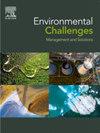旅游业引发的自然资源冲突:加纳卡库姆国家公园的案例
Q2 Environmental Science
引用次数: 0
摘要
卡库姆国家公园是加纳的旗舰生态系统,被指定为国际知名的旅游目的地。旅游业是促进经济扩张、跨文化交流和国际合作的重要经济产业。然而,几个因素的相互作用经常导致自然保护区周围社区的争端,界定了旅游业与自然资源之间的关系。当地社区位于这些保护区的边缘,既是旅游-自然资源动态的利益来源,也是冲突的来源。本研究调查了自然资源引发的冲突,重点是冲突的性质、原因和行为者。该研究采用了定性方法,并在挫折-攻击和相对剥夺理论的基础上对参与者的经历进行了解释分析。调查结果将旅游业引发的冲突描述为潜在的、非暴力的、基于问题的冲突,但却充满了潜在的结构性紧张。研究发现,权力动态、缺乏透明度、缺乏参与、未兑现的承诺、被剥夺生计和资源分配不均共同作用,以不同的方式在利益相关者之间产生冲突。冲突行为者被分为个人、团体和机构行为者,包括农民、土地所有者、社区成员、青年、加纳遗产保护信托基金(GHCT)、社区咨询委员会(CAC)、地区议会、林业委员会、传统当局和护林员。这些行动者有着独特而不同的利益、立场和需求,助长了旷日持久的冲突。该研究建议公平的资源分配和冲突解决机制,以解决对旅游业至关重要的复杂动态。本文章由计算机程序翻译,如有差异,请以英文原文为准。
Tourism-induced natural resource conflict: The case of Kakum National Park, Ghana
Kakum National Park is a flagship ecosystem in Ghana, designated as a tourism destination of international repute. Tourism serves as an essential economic industry that promotes economic expansion, cross-cultural communication, and international collaboration. Nevertheless, the interaction of several elements frequently results in disputes in the communities around natural reserves, defining the relationship between tourism and natural resources. Situated on the edge of these reserves, local communities are both a source of benefits and conflict in the tourism-natural resource dynamic. This research investigates the natural resource-induced conflict, focusing on the nature, causes and actors of the conflict. The study used a qualitative approach and adopted an interpretive analysis of participants' experiences, underpinned by the frustration-aggression and relative deprivation theories. The findings described the tourism-induced conflict as latent, nonviolent, and issue-based, but laden with underlying structural tensions. The study discovered that power dynamics, perceived lack of transparency, lack of participation, unfulfilled promises, perceived deprivation of livelihood, and uneven distribution of resources acted together and differently to create conflict among the stakeholders. The actors of conflict were categorised into individuals, groups and institutional actors, comprising farmers, landowners, community members, youth, Ghana Heritage Conservation Trust (GHCT), Community Advisory Committee (CAC), the district assembly, forestry commission, traditional authority and rangers. These actors shared unique and differing interests, positions, and needs that fueled the protracted conflict. The study recommends fair resource distribution and conflict resolution mechanisms to address the complex dynamics critical to the tourist industry.
求助全文
通过发布文献求助,成功后即可免费获取论文全文。
去求助
来源期刊

Environmental Challenges
Environmental Science-Environmental Engineering
CiteScore
8.00
自引率
0.00%
发文量
249
审稿时长
8 weeks
 求助内容:
求助内容: 应助结果提醒方式:
应助结果提醒方式:


